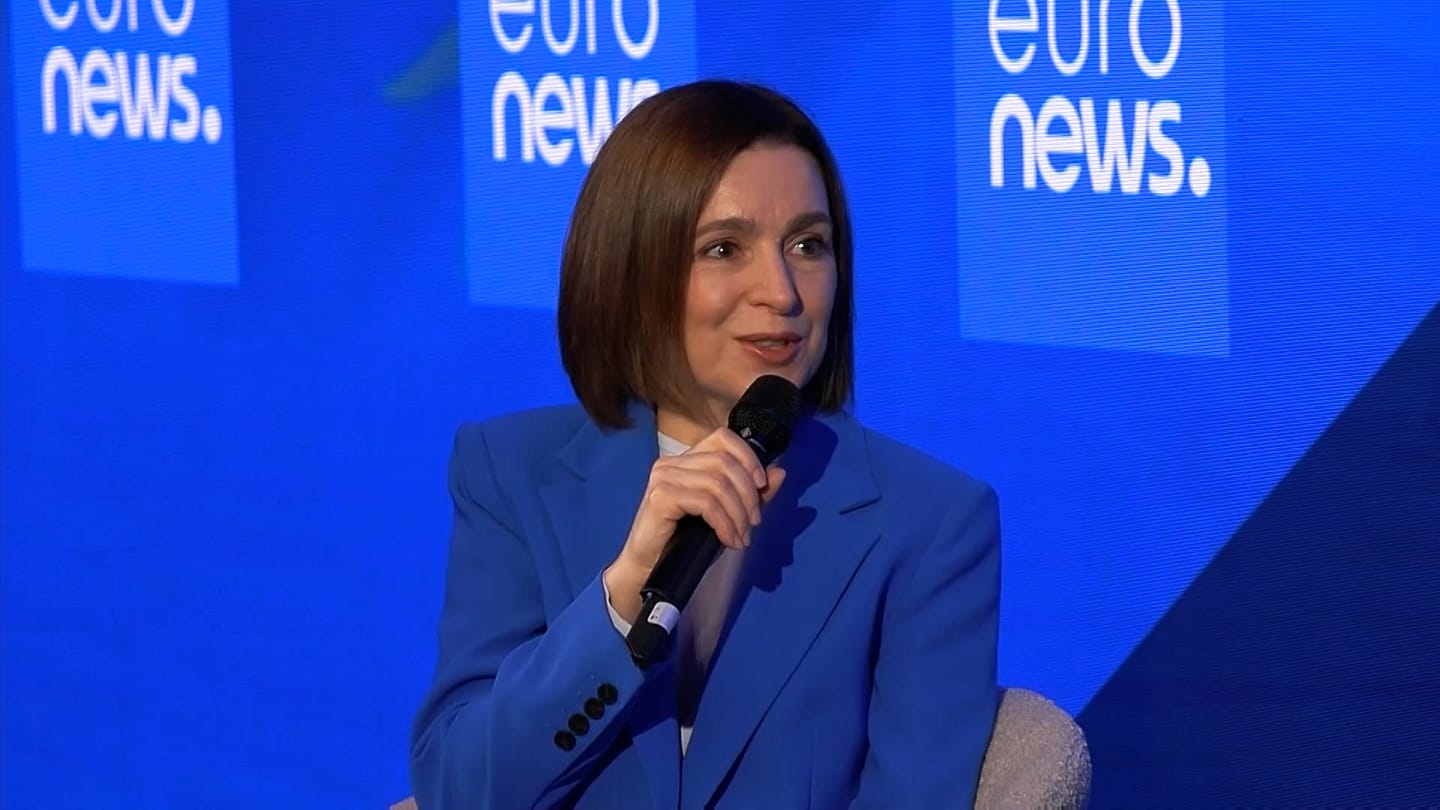
The European Union must find “creative” ways to break the political impasse and speed up the process for Moldova to join the bloc, President Maia Sandu told Euronews.
Sandu, who won a second term in office in a ballot in September, campaigned on a pro-European platform and made joining the EU a priority for Moldova. In the run-up to the election, she denounced Russian interference and fraudulent practices to buy votes.
According to Sandu, joining the EU is the best guarantee for her small country of 2.4 million people to maintain its independence. The Moldovan election gathered international attention as a flashpoint between the West and Russia.
“You cannot allow our countries to be used by authoritarian regimes, because that is exactly what is going to happen if we are not part of the European Union,” Sandu told The Europe Conversation during an EU enlargement summit hosted by Euronews in Brussels. “This is vital”.
Moldova applied for EU membership in 2022 and was granted candidate status in June that year, alongside Ukraine. The two countries are looking to open what is known as “clusters” — a set of requirements needed to advance the accession negotiations. All 27 member states must agree unanimously that the conditions have been met before moving to the next phase of negotiations.
In a report published this month, the European Commission welcomed Moldova’s pace of reforms to align with the bloc and recommended opening three clusters for negotiations immediately, and three additional ones before the end of the year.
“The Commission will work to put the European Council in a position to move forward and open all the clusters before the end of this year,” the report said, while acknowledging the country’s efforts in “the context of unprecedented Russian interference” in the run-up to the September ballot.
Still, Moldova finds itself in a delicate balancing act.
Its candidacy has become tied to that of Ukraine. While the process of joining the European Union is merit-based and each candidacy is treated individually, Brussels has refrained from advancing Moldova’s bid without Ukraine as the two are closely intertwined geographically and strategically.
Kyiv has said that separating the two countries would send a negative signal and noted that Ukraine applied before Moldova.
The Ukrainian bid, however, is stuck in limbo as Prime Minister Viktor Orbán of Hungary maintains his veto on the country. Orbán has long argued Ukraine should not join the EU and form a “strategic partnership” instead, but Kyiv and the majority of EU members refuse this idea.
Asked by Euronews if the rules should be changed to advance the process, Sandu welcomed the merit-based criteria but also suggested the EU will have to find political solutions to break the impasse around unanimity and the veto policy.
Beyond completing the technical chapters in the negotiation with the Commission, all 27 EU leaders who form the European Council must agree unanimously before a candidate joins as a full member of the European Union.
“I know it’s not easy, but I do think that the EU should get a bit creative with its own internal reforms, because it is also in its interest,” she told Euronews. “From our side, we are working hard to meet EU standards and this should be recognised”.
Moldova says it aims to complete accession negotiations by 2028, a goal the Commission described as “ambitious, but achievable”.
The head of the European Council, António Costa, who presides over the 27 member states, called on the European leadership to keep the momentum on enlargement or risk staying “trapped by painful historical legacies”.